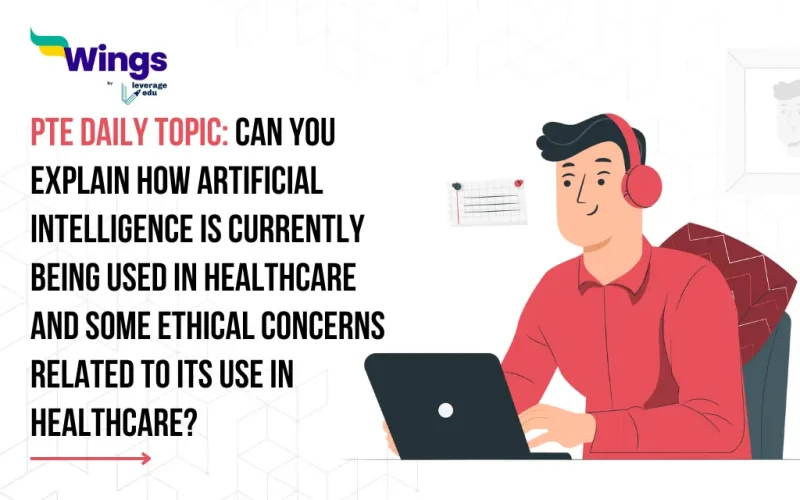Ans. Artificial intelligence (AI) has significantly impacted various sectors, and the healthcare sector is no exception. AI is revolutionising the healthcare sector by improving diagnostic accuracy, streamlining administrative processes, and enhancing patient care. However, along with these advances, it also raises important ethical concerns that need to be addressed.
In healthcare, Artificial intelligence enhances diagnostic and predictive capabilities. AI algorithms help doctors by analysing medical images with high precision, often detecting anomalies such as tumours or fractures more accurately than humans. It also uses predictive analytics to process large amounts of patient data to identify major risks for certain conditions and enable early intervention and personalised treatment. Additionally, AI-driven chatbots and virtual assistants provide patients with real-time information and support, which reduces the burden on healthcare professionals.
Despite these advancements, Artificial intelligence in healthcare brings several ethical concerns. The first one is Data privacy, which is a major issue, as AI systems need extensive patient data to function effectively. Ensuring robust data protection and obtaining informed patient consent are crucial to safeguarding sensitive information. Another significant concern is bias in AI algorithms. If the data used to train AI lacks diversity, it may produce biased outcomes, leading to disparities in healthcare delivery. For instance, an AI system trained mainly on data from one demographic group may not perform accurately for individuals from different backgrounds, exacerbating existing healthcare inequalities.
Additionally, AI systems often have complex, opaque decision-making processes, making it hard for healthcare providers and patients to understand how conclusions are reached. This lack of transparency can undermine trust in AI-driven healthcare solutions.
In conclusion, while AI has the potential to transform healthcare, addressing its ethical concerns is crucial. By implementing strong data protection measures, ensuring diverse training data, and promoting transparency and accountability, the healthcare industry can harness AI’s benefits while protecting patient rights and promoting equitable care.
Are you preparing for the PTE Exam? Check out the blogs below to bolster your chances of securing better scores in the PTE exam.
| Related Blogs | ||
| PTE Exam Pattern – How to Crack the … | PTE – An Exam That Takes You To Places | PTE Writing Essay-Questions Samples |
| PTE Syllabus – Know It Inside Out | PTE Exam: Everything You Need To Know | PTE Exam Pattern for Academic and General |
Download the Leverage App today.


Need help preparing for PTE? Check out the best PTE preparation courses in the market offered in a live training environment by trusted educators. If you want to help studying abroad, call 1800572130.


 One app for all your study abroad needs
One app for all your study abroad needs












 60,000+ students trusted us with their dreams. Take the first step today!
60,000+ students trusted us with their dreams. Take the first step today!